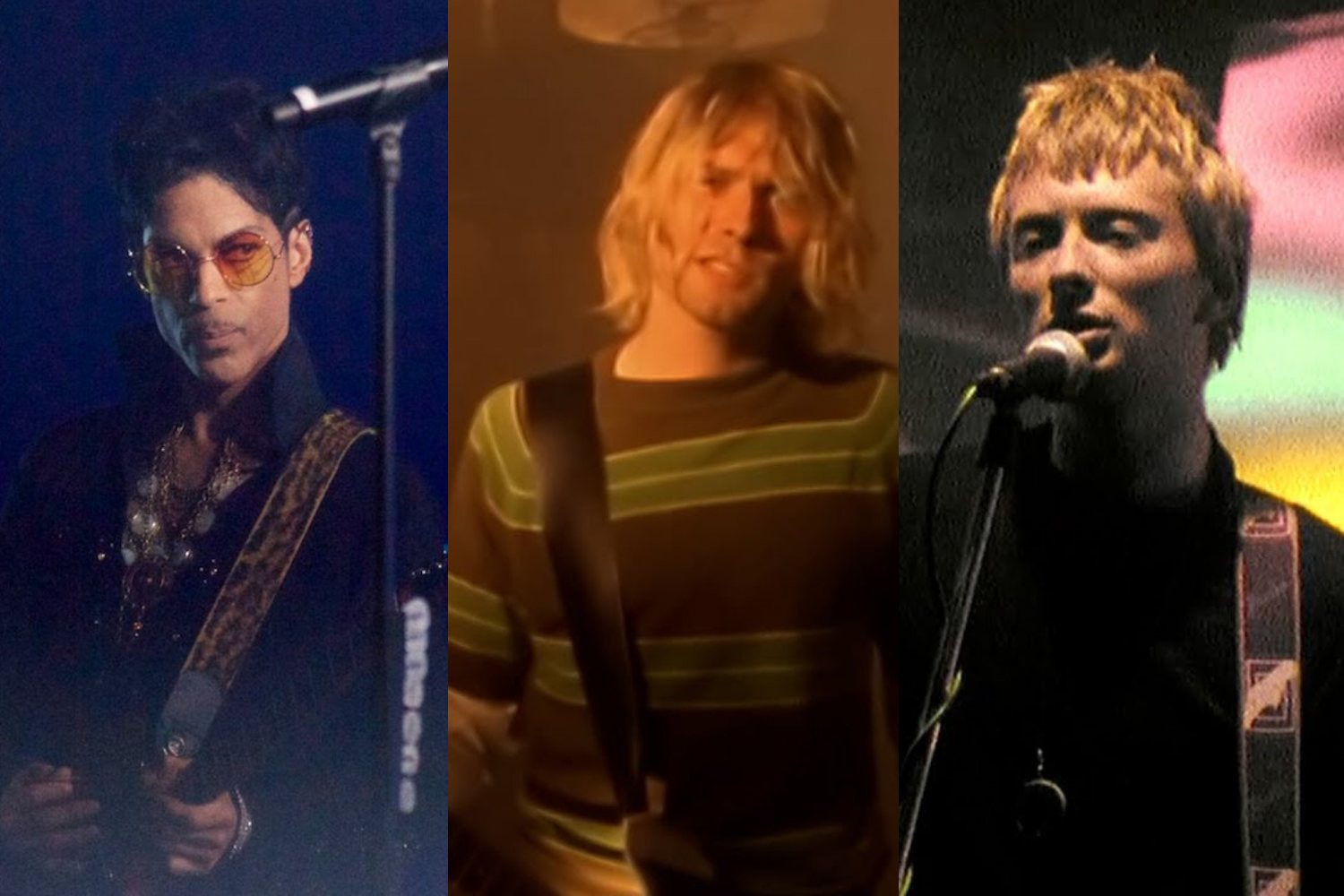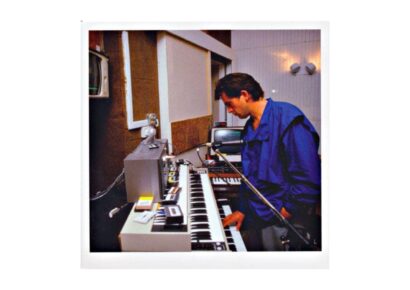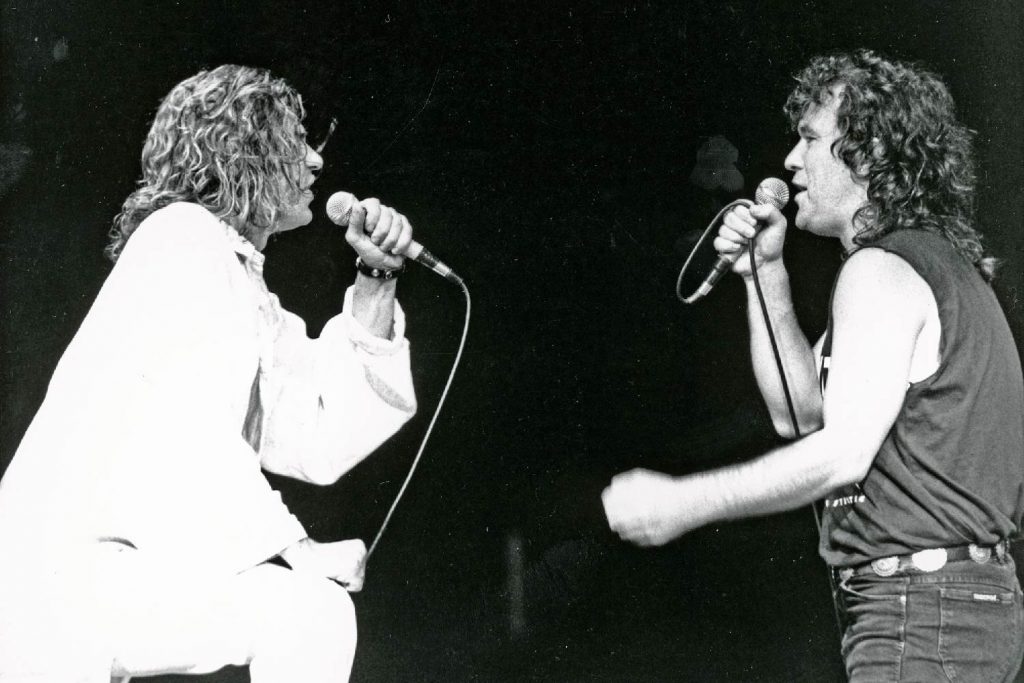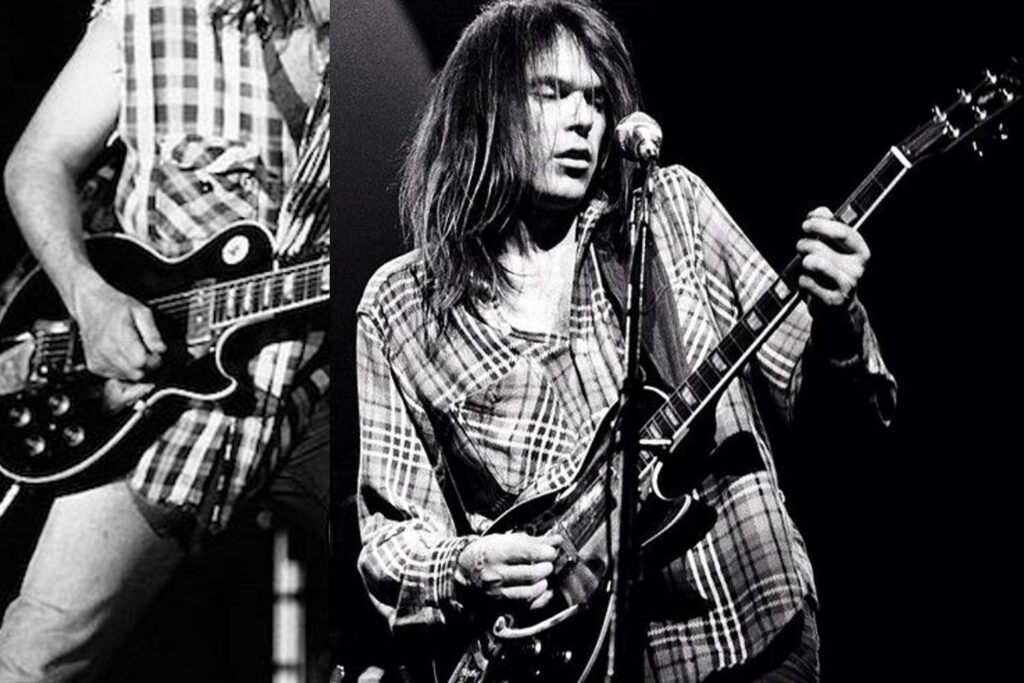From Radiohead's "Creep" to Taylor Swift's "Shake it Off", these hit songs almost didn't see the light of day.
When it comes to hit songs, it seems as though there’s no surefire recipe for success – many artists have faced concerns that their material might not fare well on the charts. Too commercial? Not commercial enough? Bound to alienate fans? Too controversial? Sound too much like someone else?
Read up on all the latest features and columns here.
These are eight examples of when an artist or record company initially refused to release a song as a single – only to see its mega-success change their careers, or even change the landscape of a genre forever.
Radiohead – “Creep” (1992)
You can understand why Radiohead learned to dislike “Creep”, their biggest hit.
It was written in 1987 when front man Thom Yorke was 19 and studying English and fine arts at Exeter University, “forlorn and a little isolated”, a friend recalled, because of his bad eye.
When “Creep” came up as a single choice for Radiohead’s debut album Pablo Honey (1993), it wasn’t considered “edgy” enough.
Jonny Greenwood apparently deliberately sabotaged it with stringent pre-chorus guitar.
However, US college radio started spinning it, forcing their label to release it as a single.
“Creep” was a hit in 15 countries, reaching #6 in Australia, #7 in the UK and Top 40 in the US.
Yorke would admit he tried to live up being a rock star, becoming an obnoxious drunk.
New fans would leave in droves after the band had played the song, with Yorke losing his cool at a Montreal show, yelping “fuck off, we’re tired of it!”
Albert Hammond and Mike Hazlewood got co-writers’ credits and royalty share due to its similarity to their song “The Air That I Breathe” (a hit for The Hollies in 1972).
Taylor Swift – “Shake It Off” (2014)
Taylor Swift was doing big business as a hee-haw country singer.
So on her fifth album 1989, when she turned up beaming with a pop sound, her record company Big Machine hated it, in particular the dance-pop anthem “Shake It Off” that she wanted as the first single. They hated the artwork and hated the title.
But Tay-Tay insisted, and “Shake It Off” debuted at #1 on the Billboard US Hot 100 and also topped charts in Australia, Canada, Hungary, Mexico, New Zealand and Poland.
“Shake It Off” was a two-finger aimed at those who had thugged Taylor for her image, with the singer using common phrases as “players gonna play” and “haters gonna hate” to mark her indifference to their spiteful carping.
The writers of “Playas Gon’ Play”, recorded by girl group 3LW, claimed Swift stole the line from them. She told a court she’d never heard the song.
It had, after all, peaked at #81 in America.
Prince – “Kiss” (1986)
In the spring of 1985, Prince was working on his Parade album at Sunset Sound Studios.
Also recording their debut album there was Mazarati, a band formed by his bassist Brown Mark (aka Brownmark) and signed to his Paisley Park label.
Mark asked if he had a spare song, so Prince dashed off a rough minute-long acoustic demo of “Kiss” on a mini tape recorder.
Mark and producer David Z developed it into an irresistible funk groove, with vocal arrangements, a piano part inspired by Bo Diddley, and a beat from a LinnDrum.
When Prince heard their version, he grabbed the song back, saying “It’s too good for you” and promised Mark a songwriting co-credit in lieu.
He wiped their vocal, added the guitar break in the chorus, ran the kick drum through an AMS RMX-16 reverb to replace the bass, and included it as a last-minute addition to Parade.
However Warner Bros refused to release it as a single, arguing it was too “minimalistic”.
But Prince got his way. It reached #1 in America and sold a million copies, and was a hit in 16 countries including Australia at #2, and even won a Grammy.
Brown Mark never got the credit Prince promised him, telling Uncut: “He totally stiffed me. I quit the band shortly after that.
“He treated me so bad, but I don’t care. He gave me a ton of opportunities, so I look at the good things.”
John Mellencamp /John Cougar– “Jack & Diane” (1982)
It spent four weeks at #1 in America in 1982 and reached #7 in Australia.
But John Mellencamp (then known as John Cougar) admits it took him over 30 years to take a shine to the ditty about small town teen love.
He once referred to it as “a dumb little song”.
Recording it had been problematic. The band had issues with its time changes.
Mellencamp wanted that bombastic drum sound on Phil Collins’ “In The Air Tonight”, but neither he nor producer Don Gehman could do it.
It took David Bowie’s previous guitarist Mick Ronson, who dropped by the studio in Miami to say hello, to explain how producer Hugh Padgham had used an effect called gated echo on the drum recording to get the sound for Collins.
Another reason for Mellencamp’s early disenchantment with “Jack & Diane” was that his record company refused to release the song in its original version, which was about an inter-racial couple.
“Originally the line was Jack was not a football star, Jack was an African-American,” Mellencamp told Huffington Post in 2014.
“In 1982, when I turned the song in to the record company, they went, ‘Whoa, can’t you make him something other than that?’
“I said, ‘Well, I don’t really want to. I mean, that’s the whole point.
“This is really a song about race relationships and a white girl being with a black guy, and that’s what the song’s about.’
“And they said, ‘No, no, no, no.’ … So, anyway, through much debate and me being young, I said, ‘Okay, we’ll make him a football star’.”
Nirvana – “Smells Like Teen Spirit” (1991)
It catapulted grunge into the mainstream, and remains a great teen anthem for anyone who hates their parents and thinks life sucks.
But “Smells Like Teen Spirit” almost didn’t make it onto the Nevermind album because Kurt Cobain thought it sounded too much like The Pixies and wanted to bin it.
“When I heard the Pixies for the first time, I connected with that band so heavily that I should have been in that band—or at least a Pixies cover band.”
The Rolling Stones – “(I Can’t Get No) Satisfaction” (1965)
Keith Richards woke up in the middle of the night with an eight-note riff in his head.
He groggily reached for his acoustic guitar and trusty Philips cassette player and put down the riff before returning to the zzzs.
The next day he played the tape back, and in the first 30 seconds heard the riff, a dropped pick, a mumbled impromptu “I can’t get no satisfaction” (he was between girlfriends at the time) followed by, he said “40 minutes of me snoring.”
His original idea was the riff be played by horns.
To demonstrate it, Richards played it on a newly acquired Gibson’s Maestro FZ-1 Fuzz-Tone and presented it to the rest of The Stones as an album filler.
When they heard it, they outvoted him, insisting it had to be a single.
Richards grumbled, “The song was as basic as the hills, and I thought the fuzz-guitar thing was a bit of a gimmick.”
It broke the Stones as worldwide contenders, Newsweek hailed it the “five notes that shook the world”, VH1 named “Satisfaction” greatest rock song of all time and Rolling Stone once voted it greatest pop single of the past quarter century.
There’s been confusion as to where Keith’s slumbering songwriting session took place: the Fort Harrison Hotel in Clearwater, Florida, a house in Chelsea London or the London Hilton.
Richards maintains in his autobiography Life it was in his flat in Carlton Hill, St. John’s Wood in London.
The Clearwater reference was where Mick Jagger wrote the lyrics, by the hotel pool, four days before their first try at recording it in Chicago at Chess Records studio.
If “Satisfaction” had remained an album filler, the Gibson fuzzbox would never have become a staple of garage rock and psychedelia bands.
Although it had been on the market since 1962, by the end of 1965, the entire available stock had sold out.
Eurythmics – “Sweet Dreams (Are Made of This)” (1983)
Annie Lennox and Dave Stewart first visited Australia as members of The Tourists – and the British band celebrated its tour by breaking up in a motel in Wagga Wagga, “battered and bruised (and) massively in debt.”
On the flight home, the pair called time-out on a three year romance, but would work together on a new electro-pop project called Eurythmics.
It was hard going: one time they drove miles in the snow to play a gig to four people.
They got home at 6am and the car broke down.
When they got new gear after being approved for a bank loan of £5,000 (A$42,638 today) – a Roland SH-101 and Oberheim OB-X synths and a prototype Movement Systems Drum Computer— Stewart found it difficult to learn to play them.
One day after a nasty argument, Lennox was depressed about her music career, curled up on the floor in the foetal position crying.
Stewart began noodling a beat and riff on one synth and accidentally reversed the bass line.
“What the hell is that?” Lennox said, leaping off the floor and fleshing it out on the second synth.
When finished, it was obvious the song, about their long arduous climb to success, was a hit.
But their record company refused to release it in America because it had no chorus.
However, a radio DJ in Cleveland leaped on it, request lines lit up, and other stations followed suit.
The label was forced to change its mind –and “Sweet Dreams (Are Made of This)” went on to become their first American chart topper.
The Small Faces – “Lazy Sunday” (1968)
After losing their early pop image with cool singles “Itchicoo Park” and “Tin Soldier” and the psychedelic-pop Ogden’s Nut Gone Flake album, The Small Faces got a shock while touring Germany.
They discovered that their UK label had released “Lazy Sunday” as a single behind their backs.
The song was meant to be “a total pisstake!” writer Steve Marriott said, hamming up his Cockney roots – battles with neighbours, and sound effects including a flushing toilet.
He spent an hour on the phone begging the company to pull the track.
“Lazy Sunday” was a huge hit, but its novelty flavour disillusioned Marriott who left a year later to form Humble Pie, while the others teamed up with Rod Stewart and Ronnie Wood to form The Faces.
For more behind the scenes Radiohead anecdotes, check out our 30 year retrospective of Pablo Honey.







